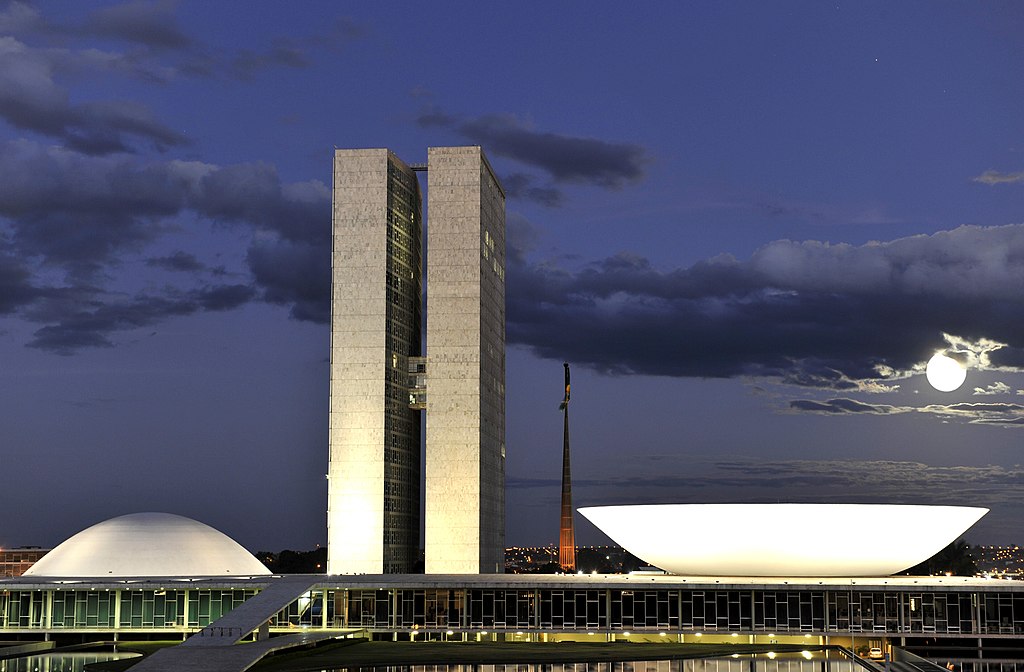Sexual corruption bill: Brazil draws a new frontier in criminal justice
As conversations around corruption and gender converge on the importance of criminalising sexual corruption, Brazil takes the lead.

In Peru, a judge requests sexual favours from a woman in return for a favourable sentence in a case involving the custody of her two-year-old son. In Tanzania, a teenage girl is pressured by a teacher to have sex in exchange for high marks and preferential treatment. In Norway, a regional governor demands sex from young male asylum seekers, who fear deportation if they reject his advances. All of these documented cases fit the definition of sexual corruption, understood as the abuse of entrusted power for sexual gain.
As new conversations on gender-based violence are spurred by the #MeToo movement and anticorruption bodies start paying closer attention to the links between gender and corruption, what were once separate agendas have begun to converge around the topic. So far, a new bill in Brazil passed the Lower House of Congress on 8 March and is projected to pass in the Senate too. Though the Jammu and Kashmir region in India has a law on sexual corruption on the books, this is likely to become the world’s first national legislation on the topic.
Other Latin American countries may follow suit before too long, with live policy discussions taking place in several of them. Meanwhile international organisations are spurring on the issue. On 19-20 March, Dr Anna Petherick, Associate Professor at the School and Director of the Lemann Foundation Programme, presented the state research in the area and discussed Brazil’s new bill at a United Nations Development Programme meeting in Amman, Jordan. In partnership with the Canadian government, the meeting launched a new regional alliance for women leaders on anti-corruption and integrity in Arab Countries. Previously, Dr Petherick has presented on gender and corruption to the United Nations General Assembly and wrote a UNODC report on the topic.
Sexual corruption is rarely reported due to social stigma and shaming. Studies suffer from a lack of reliable data due to research challenges that are part and parcel of asking questions about such a sensitive topic. But the data we already have is concerning. According to a 2019 survey from Transparency International, one in five people surveyed in Latin America had either experienced sexual corruption or knew someone who did. Similar proportions have been found in TI surveys in the Middle East and North Africa region. Vulnerable women appear to be the most likely group to be targeted, and the lingering effects on the survivors are far more insidious and enduring than in simple cases of monetary corruption. As a response, countries have begun advancing their own legal responses to the problem.
The new Brazilian bill on sexual corruption (PL 4534/2021) by young congresswoman Tabata Amaral passed the Lower House of Congress with little opposition. Those convicted under its terms could face a penalty of up to six years in jail, rising to a maximum of ten years if the sexual act was consummated. The bill was originally the brainchild of Blavatnik School alumna Carolina Martinelli, a member of the technical team shared by Tabata’s office with other congressmen, who set out to create legislation addressing the topic after reading the aforementioned UNODC report; the process was also guided by another alumnus from that team, Pepe Tonin, now director of public integrity research in Brazil's comptroller general's office.
Because sexual corruption exists at the intersection of corruption and sexual harassment, some claim that it could, theoretically, be prosecuted under the existing statutes covering either of those crimes. In Brazil, sexual corruption had been absent from the media and the civil society agenda up until recently, and some Brazilian criminal lawyers were wary of adding more provisions to what they perceive as an already bloated criminal code. However, according to the bill’s authors, the new law will shine a light on sexual corruption, close what they perceive as a legal limbo and avoid the pitfalls of prosecuting these cases under existing legislation.
The risk of using corruption laws to prosecute sexual corruption cases, for example, is that corruption laws tend to frame the public administration as the crime victim and the preeminent recipient of reparations. The risk is that the abuse survivor could be deemed complicit in the act, and thus punishable for “passive corruption” (providing or offering a bribe). The Brazilian bill’s authors were careful to avoid this risk by adding the new provision to the criminal code section on “sexual dignity”, making sure that is the ultimate public good that the law seeks to protect.
Taking the sexual harassment route to prosecute sexual corruption, on the other hand, is often complicated because it requires proving physical coercion, which is not always present in those cases. The new Brazilian bill circumvents these concerns by framing the transactional nature of sexual corruption as the crux of the crime, avoiding the more complicated issue of proving consent or lack thereof.
However, even the best legislation can only go so far in addressing complex issues like sexual corruption, and other measures are just as important to fight the problem. Nigeria sets an interesting example: there, several legislative changes dealing with sexual harassment at the national and local level over the last decade have been followed by a host of policy measures aimed at strengthening other aspects that are key in attacking the issue.
These measures include the creation of special complaints desks all over the country, new centres to provide medical and psychological support for victims of harassment, units specialised in sexual offenses and training for the investigators and prosecutors who will handle these types of cases. Engaging and educating the Judiciary and supporting capacity building and adequate infrastructure both inside and outside the judicial system will most likely go a long way in helping the law achieve its objectives in Brazil, as well – although this has yet to be established.
Another issue of concern is that high-profile anti-corruption issues are often politicised and used for political ends, a problem that Brazil, like many countries, is sadly familiar with. As sexual corruption cases reach the system and the public eye, protecting the privacy of the survivors and avoiding their revictimisation will become a crucial collective responsibility not only for legislators and prosecutors, but for the media and the public at large.


